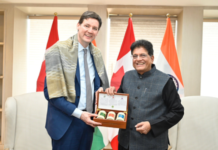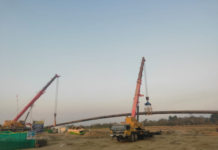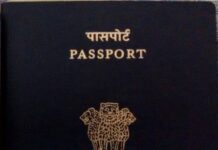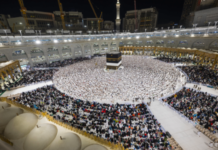New Delhi– Indore has once again emerged as India’s cleanest city, claiming the top spot in the Swachh Survekshan 2024–25 for the eighth consecutive year.
The results of the Central government’s annual cleanliness survey were announced in New Delhi, where President Droupadi Murmu presented the awards at a ceremony organized by the Ministry of Housing and Urban Affairs at Vigyan Bhawan.
Surat and Navi Mumbai followed Indore, taking second and third place respectively, continuing their strong performance in urban sanitation.
In the 3–10 lakh population category, Noida was named the cleanest city, with Chandigarh in second and Mysuru in third.
Now in its ninth edition, the Swachh Survekshan survey evaluated over 4,500 cities using 10 parameters and 54 indicators, with a strong emphasis on sanitation, waste management, and service delivery. This year’s theme was “Reduce, Reuse, Recycle,” aligning with the government’s focus on sustainable urban development.
Indore’s continued dominance earned it a place in the newly launched Super Swachh League, a category created to recognize cities that have ranked in the top three for the past three years and remain in the top 20 percent of their population bracket. Indore not only qualified for this elite group but also received the highest score among the 23 cities included.
Municipal Commissioner Shivam Verma led the city’s delegation at the awards event, reflecting Indore’s ongoing commitment to civic excellence. Since first winning in 2017, Indore has become a national benchmark for citizen-led cleanliness initiatives.
Prime Minister Narendra Modi has previously praised Indore’s proactive governance, noting that the city often implements reforms well ahead of others. Indore’s success is credited to strong public participation, innovative waste management practices, and close coordination between residents and local authorities.
Ujjain and Budhni were also recognized in their respective categories within the Super Swachh League. For the first time, the government divided cities into five population-based groups—very small, small, medium, big, and million-plus—to ensure a fair and comparative assessment. This new system allowed cities such as Panchgani, Saswad, Tirupati, Noida, and Navi Mumbai to compete against similarly sized peers.
Swachh Survekshan 2024–25 saw the participation of more than 14 crore citizens through surveys, mobile apps, and social media platforms, reinforcing its reputation as the world’s largest urban cleanliness assessment.
Indore’s eighth straight win not only reflects its operational efficiency but also points to a deeper cultural shift where cleanliness has become embedded in the city’s identity.
The awards were distributed across four main categories: Super Swachh League, cleanest cities by population group, special recognitions including Ganga towns and cantonment boards, and state-level honors for promising clean cities in various states and union territories. A total of 78 awards were presented.
According to the Ministry of Housing and Urban Affairs, the awards underscore the importance of the reduce, reuse, and recycle theme. The ministry noted that more than 3,000 assessors carried out detailed inspections across every ward in the country over a 45-day period. The initiative included assessments of more than 11 lakh households, ensuring a comprehensive and inclusive approach to evaluating urban living standards and sanitation across India. (Source: IANS)














